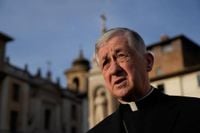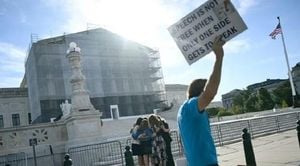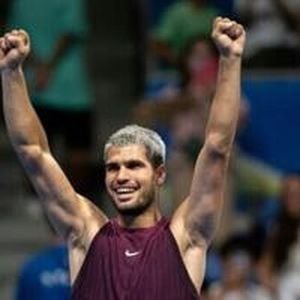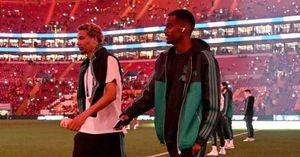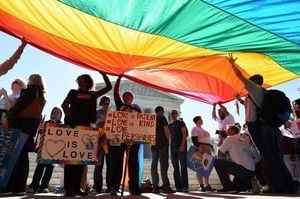On the evening of October 9, 2025, the debate over immigration in the United Kingdom and the United States took center stage—albeit in very different arenas. In Shrewsbury, Shropshire, the BBC’s flagship current affairs program, Question Time, became the backdrop for a fiery exchange between political leaders and the public on the topic of immigration. Meanwhile, across the Atlantic in Rome, Pope Leo XIV delivered a pointed message to Chicago labor union leaders, urging them to advocate for immigrants and minorities as tensions escalated back home.
On Question Time, Zia Yusuf, Reform UK’s head of policy, found himself in the hot seat as an audience member challenged him not to use the word “immigration” throughout the program. The request, delivered with conviction, drew gasps and a ripple of agreement from others in the room. “The vast majority of people in this country live very happily, and very peacefully together. The Tories have done a terrible job. One other thing that Mr Jenrick said is that 'Handsworth is a slum', it is slum possible due to 14 years of terrible Tory rule in this country. But Mr Yusuf tonight you will say everything is about immigration. I challenge not to use the word 'immigration' tonight because not everything in this country is the problem of immigration. There are problems in this country, but it is not just immigration,” the audience member declared, according to Birmingham Live.
Despite the challenge, Yusuf stood his ground. “I am afraid I am going to mention immigration because, according to the latest YouGov poll, it is the number one issue—the number one issue—for ordinary British people, for voters across this country. Of course, it is not the only issue, I couldn't agree with you on that more,” he replied. Yusuf, whose parents migrated from Sri Lanka to the UK in the 1980s, went further, stating, “It is absolutely true there has been far too much mass immigration in this country. It has been to the detriment of this country. The Tories are most culpable for that but I'm afraid the Labour government are frankly pouring gasoline on that problem.”
The conversation quickly became heated. Zack Polanski, the Green Party leader making his Question Time debut, interjected: “Zia, do you ever think it (immigration) is the number one problem because you spend a lot of time spreading misinformation and fear?” The audience erupted into applause and cheers, signaling a clear divide in public sentiment. The debate, which began with a reference to Conservative politician Robert Jenrick’s controversial remark branding Handsworth, Birmingham, as “a slum,” soon required host Fiona Bruce to step in and restore order.
This televised clash reflected a broader national anxiety over immigration policy in Britain, where the issue has remained a political lightning rod for years. The audience’s reaction—both the gasps at the initial challenge and the cheers following Polanski’s rebuttal—underscored the emotional weight the subject carries for many Britons. Yusuf’s insistence on discussing immigration, backed by polling data, highlighted the topic’s persistent prominence in the public consciousness, while Polanski’s accusation of fear-mongering spoke to concerns about the rhetoric shaping the debate.
Yet the UK’s stormy television debate was not the only major immigration story of the day. In Rome, Pope Leo XIV met with a delegation of Chicago labor union leaders, delivering a message that resonated far beyond the Vatican’s walls. According to the Associated Press, the pope urged the union leaders to “advocate for society to respect the human dignity of the most vulnerable,” specifically calling on them to welcome immigrants and minorities into their ranks. “While recognizing that appropriate policies are necessary to keep communities safe, I encourage you to continue to advocate for society to respect the human dignity of the most vulnerable,” Leo said, according to the AP.
This meeting came at a tense moment for Chicago, where the Trump administration’s crackdown on immigrants had intensified. National Guard troops had been deployed to protect federal property, including a U.S. Immigration and Customs Enforcement building that had seen clashes between protesters and federal agents. Chicago Cardinal Blase Cupich, who accompanied the labor leaders, told the AP that Pope Leo XIV was well aware of the situation on the ground. “I really didn’t have to tell him much at all, because he seemed to have a handle on what was going on,” Cupich said. He added that the pope had urged U.S. bishops to “speak with one voice” on immigration, making the issue a top agenda item for the upcoming U.S. Conference of Catholic Bishops meeting in November.
“This has to be front and center right now. This is the issue of the day. And we can’t dance around it,” Cupich emphasized. Catholic leaders in the U.S. have been vocal in their opposition to the administration’s policies, which have included family separations and increased deportations. “He (Leo) wants us to make sure, as bishops, that we speak out on behalf of the undocumented or anybody who’s vulnerable to preserve their dignity,” Cupich said. “We all have to remember that we all share a common dignity as human beings.”
The pope’s remarks also touched on recent controversy within the American Catholic hierarchy. Leo defended Cupich’s decision to honor Illinois Senator Dick Durbin for his work helping immigrants—a move that drew objections from some conservative bishops because of Durbin’s support for abortion rights. Ultimately, Durbin declined the award, but the incident highlighted the tensions within the church over how best to respond to the immigration crisis.
This was not the first time in recent days that Pope Leo XIV had addressed the plight of migrants. On the day before his meeting with Chicago’s labor leaders, he heard from El Paso bishop Mark Seitz, who brought letters from desperate immigrant families living under the threat of deportation. The pope’s consistent message: the church must defend the dignity of all, especially the most vulnerable.
Back in the UK, as the Question Time debate wound down, the discussion turned to international affairs, with Donald Trump’s involvement in the Israel and Hamas agreement and the leader of Hamas in Gaza announcing the war was “completely over.” But the echoes of the earlier immigration debate lingered, a reminder that questions of who belongs, who is welcome, and how to balance security with compassion remain unresolved on both sides of the Atlantic.
The events of October 9 revealed a world wrestling with the complexities of migration. In Shrewsbury, the public demanded accountability and nuance from their leaders, while in Rome, the spiritual leader of millions called for empathy and unity. Whether in a crowded television studio or the halls of the Vatican, the debate over immigration continues to shape the moral and political landscape of our time.
